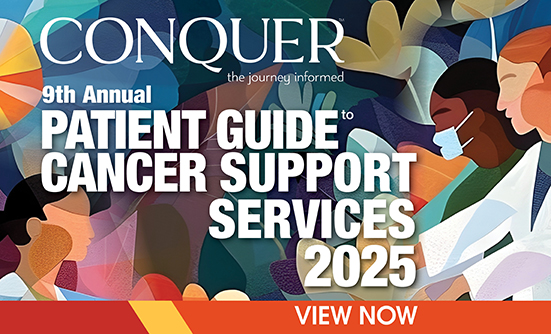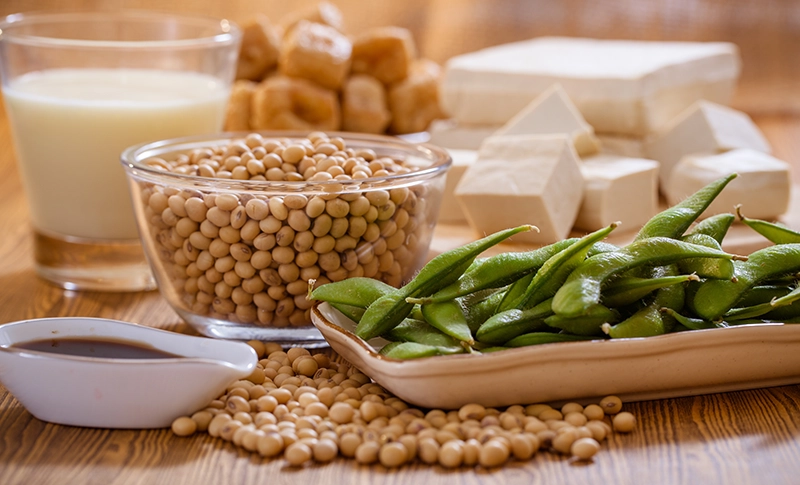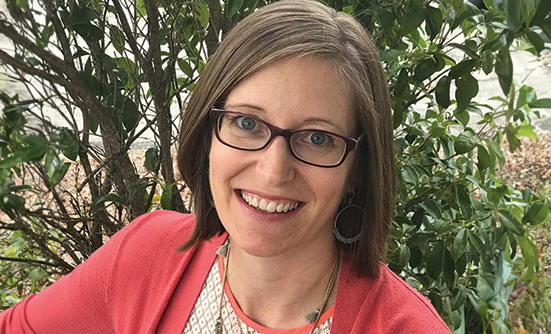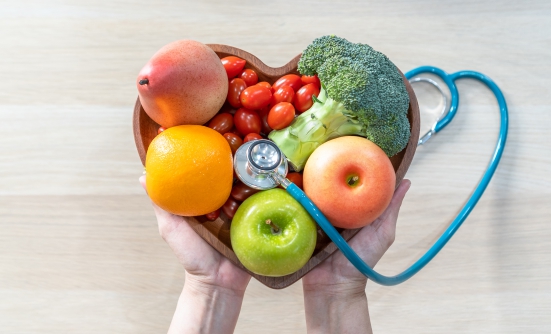
A gastric cancer diagnosis is a devastating experience for patients at any stage. With so much to understand about navigating life with this new condition, learning to advocate for quality care can feel overwhelming.
Dealing with cancer has been exacerbated by the COVID-19 pandemic, which has presented new risks and barriers for patients who are already managing significant challenges to their physical and mental well-being, from delayed or canceled medical appointments to the financial impact of the economic downturn to access to nutritious food.
Because gastric cancers involve the digestive system, following a healthy diet is especially important for patients with gastric cancer. Education is one of the best tools patients have to learn about lifestyle choices they can make to support their treatment plan. Maintaining proper nutrition is a great way to keep up strength and optimize treatment outcomes.
Understanding Gastric Cancer
Gastric cancer is caused by the growth of abnormal cells in the stomach. Most gastric cancers start in the layer where stomach acid and digestive enzymes are made, but some gastric tumors can form in any part of the stomach and grow quickly to invade other healthy tissues, if not treated early.
These cancers typically develop slowly and may cause few to no symptoms in the early stages, which allows them to go undetected for many years. Because there is no screening for gastric cancer, it is often diagnosed at a later stage, and survival is low.
Gastric cancer involves the gastrointestinal (GI) tract and covers a group of cancers, including anal, appendix, bile duct, esophageal, colorectal, gallbladder, liver, pancreatic, rectal, small intestine, and stomach cancer.
Stomach cancer is the 15th most common type of cancer in the United States, with an estimated 26,560 new cases and more than 11,000 deaths expected in 2021. The 5-year relative survival rate for people with stomach cancer is only about 32%.1
This is why patients must play a role in raising their voices to increase awareness to this group of cancers and encourage screening and the development of new therapies.
The Signs of Gastric Cancer
Patients diagnosed with gastric cancer may have a range of symptoms that can affect their ability to eat and get proper nutrition. These symptoms may include2:
- Poor appetite
- Involuntary weight loss
- Reflux disease
- Abdominal pain
- Difficulty swallowing
- Blood in the stool
- Feeling full after a small meal
- Fatigue
- Upset stomach.
In addition, the treatment of gastric cancer can also introduce new GI symptoms, such as nausea, vomiting, and diarrhea, making it even more challenging for patients to get the nutrients their compromised body needs.3,4
The Benefits of a Balanced Diet
Many parts of a cancer journey can feel out of a patient’s control, but following a well-balanced diet during and after treatment can help patients feel better, and may even expedite their recovery process.
Therapy outcomes often improve in patients who maintain lean muscle and a healthy weight, which can be achieved through a diet consisting of healthy fats, lean proteins, and complex carbohydrates.5
It is also important for patients to limit their consumption of processed foods, foods high in sodium, and alcohol during the course of their treatment and recovery.
Hydration is also important, so patients should drink lots of fluids and avoid too much caffeine.4
And although vitamins and supplements may often be beneficial, these can sometimes negatively affect cancer treatments and other medications, so it’s a good idea to speak with your doctor and a qualified nutritionist before taking supplements or altering your current diet.4
Changes to your diet can go a long way toward combating nutrition-related symptoms caused by gastric cancer treatments. For example, eating smaller, frequent meals packed with protein can help fight fatigue and loss of appetite; nutritional supplement drinks may help patients who have unintentional weight loss; and hydration can reduce constipation and replace fluid loss for patients who have diarrhea.4
A patient who requires a gastrectomy—which involves the partial or total removal of the stomach—will often need to modify his or her diet significantly to improve any vitamin and mineral deficiencies.
Following these diet guidelines can also help prevent a condition known as “dumping syndrome,” in which food is released too quickly from the stomach into the small intestine.4
Gastric Cancer Resources
If this information is difficult for you to work through on your own, the good news is you don’t have to. Working with a dietitian or a nutritionist can provide more personalized recommendations for appropriate diet and nutrition for anyone with gastric cancer.
In addition, the GI Cancer Alliance has several useful resources (see www.gicancersalliance.org/resources) that are designed especially for patients with gastric cancer and their families.
The “Gastric Cancer and Nutrition Booklet” (see www.gicancersalliance.org/wp-content/uploads/2020/10/Gastric-Cancer-Nutrition-Brochure_web.pdf) provides detailed and practical information about the importance of good nutrition for people with gastric cancer and strategies for achieving it.
Other resources offered on the GI Cancer Alliance website include news related to gastric cancer, information about relevant clinical trials for patients with gastric cancer, and other education and advocacy-related articles to help patients take an active and informed role in their journey of living with gastric cancer.
The news section on the website is particularly relevant in the current COVID-19 environment, providing patients with specific information about gastric cancer and how the pandemic may affect their treatment.
Key Points
- Stomach cancer is the 15th most common type of cancer in the United States, with an estimated 26,560 new cases and more than 11,000 deaths expected in 2021
- It is important for patients to limit their consumption of processed foods, foods high in sodium, and alcohol during the course of their treatment and recovery
- To maintain good hydration, patients should drink lots of fluids and avoid too much caffeine
- Eating smaller, frequent meals packed with protein can reduce fatigue and improve appetite
- Nutritional supplement drinks may control unintentional weight loss
- Hydration can reduce constipation and replace fluid loss for patients with diarrhea
References
- National Cancer Institute. Cancer stat facts: stomach cancer. April 2021. https://seer.cancer.gov/statfacts/html/stomach.html.
- American Cancer Society. Signs and symptoms of stomach cancer. Revised January 22, 2021. www.cancer.org/cancer/stomach-cancer/detection-diagnosis-staging/signs-symptoms.html.
- National Cancer Institute. Nausea and vomiting related to cancer treatment. Updated March 12, 2020. www.cancer.gov/about-cancer/treatment/side-effects/nausea/nausea-pdq.
- National Cancer Institute. Diarrhea and cancer treatment. Updated August 9, 2018. www.cancer.gov/about-cancer/treatment/side-effects/diarrhea.
- GI Cancers Alliance. What you need to know about gastric (stomach) cancer & nutrition. www.gicancersalliance.org/wp-content/uploads/2020/10/Gastric-Cancer-Nutrition-Brochure_web.pdf.
Patient Resources
American Cancer Society
www.cancer.org/cancer/stomach-cancer/about.html
GI Cancers Alliance
www.gicancersalliance.org
National Cancer Institute
www.cancer.gov/types/stomach










